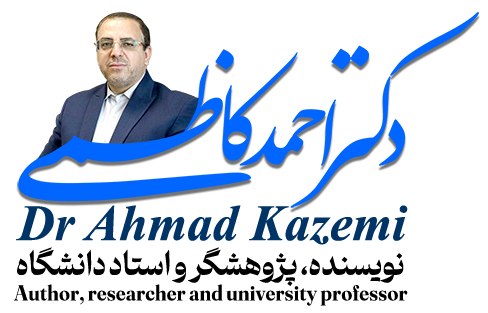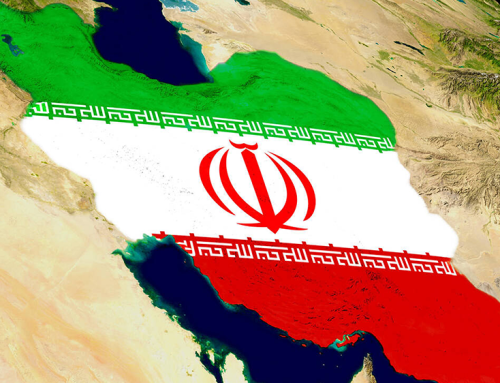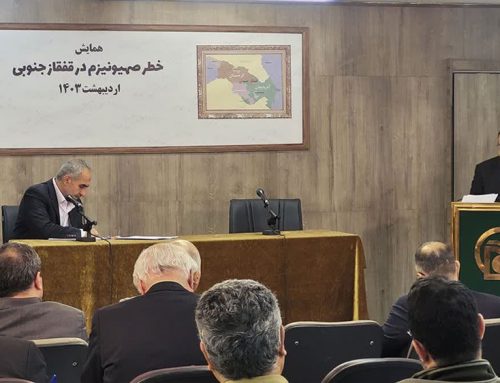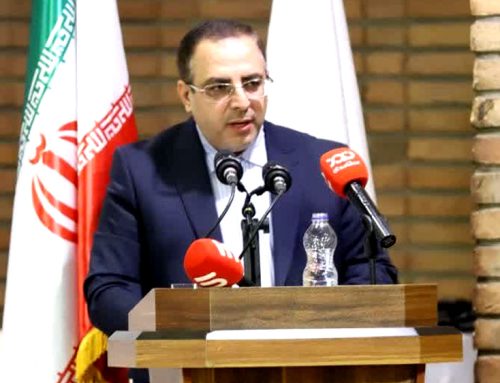The hearings of South Africa’s complaint against the Israeli regime at the International Court of Justice (ICJ) in The Hague, which began on January 11, 2021, have garnered global attention. The complaint accuses the Israeli regime of genocide in Gaza and violations of the “Convention on the Prevention and Punishment of the Crime of Genocide” (1948). Dozens of countries have shown their support for this complaint. This legal process, expected to continue for years, represents the most significant judicial challenge to the Israeli regime since its establishment after Nakba Day 1 . It confirms the accelerating decline of the Israeli regime from a legal standpoint. In light of this, ten points can be proposed:
1. The International Court of Justice, along with its predecessor, the Permanent International Court of Justice, has a history of over a hundred years. It is the most important judicial pillar of the United Nations, and its rulings are binding for all countries. However, filing a lawsuit in the ICJ requires the consent of both parties and the issuance of a declaration known as the “optional declaration of acceptance of the mandatory jurisdiction of the court. ” Otherwise, a lawsuit can only be filed if both the plaintiff and defendant countries are members of the convention and refer their dispute regarding its interpretation and implementation to the International Court of Justice.
2. Both South Africa and Israel are members of the “Convention on the Prevention and Punishment of the Crime of Genocide” adopted by the United Nations in 1948. South Africa’s 84-page petition cites Article 9 of this convention and accuses the Israeli regime of committing acts of genocide in Gaza after the Al-Aqsa Storm Operation on October 7, 2023. The petition also highlights multiple violations of the convention’s provisions and calls for an end to genocide, compensation for Gaza’s reconstruction, and the return of Palestinian refugees. Israel has not accepted the jurisdiction of international courts such as the ICJ and the International Criminal Court (ICC) in the past. Instead, it has chosen to refrain from answering in international courts. However, the regime now finds itself in a “legal trap,” evident from the nervous reactions of the prime minister and other officials who are concerned about the legal and political consequences of this court case.
3. South Africa’s complaint, in addition to its legal dimensions, also has three normative dimensions: First, the subject of the complaint is the discussion of genocide, which is referred to as “criminal acts” in international criminal law and greatly offends the public conscience of humanity. 2. Second, the complaint was made by a country that has been a victim of apartheid and racial discrimination for years. Third, a complaint has been filed against a party that has been engaged in military aggression and various international crimes in Palestine for over seven decades, with a plan reminiscent of the Holocaust, while receiving compensation from some Western countries such as Germany, under the guise of being a so-called “genocide victim.”
4. The Israeli regime experiences its first legal defeat in this matter by failing to challenge the competence of the International Court of Justice in examining this complaint during the so-called “preliminary objections” stage. Based on the 1948 Convention, the International Court of Justice considers itself competent to deal with this lawsuit.
5. Due to the length of the proceedings in court, South Africa, in its petition, requests the issuance of a “temporary order” (temporary injunction) on nine issues, including halting military operations, ensuring that operations are not resumed, and the Israeli regime’s actions to prevent any operations that may lead to genocide, the Tel Aviv regime’s effective efforts to prevent the destruction of evidence and cooperation with fact-finding teams the Israeli regime’s submission to the court regarding the actions taken and refraining from any actions that may prolong or hinder reaching a solution in the court. Issuing a temporary order focusing on the “need to take necessary measures to prevent genocide in Gaza” creates significant challenges for the regime and its allies, especially the U.S. and the UK, to continue their attacks. This is because based on the court’s emphasis in some cases such as the “LaGrand brothers” case and an interpretative approach to Article 94 of the United Nations Charter, “temporary decisions” such as court rulings are binding on the parties. This issue will increase the anti-Israeli pressure factor on the supporters of this regime in world public opinion.
6. Previously, the International Court of Justice, in the form of the “Convention on the Prevention and Punishment of the Crime of Genocide,” discussed the issue of the genocide of Rohingya Muslims. It addressed the complaint of “Bosnia and Herzegovina against Serbia and Montenegro” (2007), the complaint of Ukraine against Russia (February 2022), and the complaint of Gambia against Myanmar (2019). ). In addition to issuing a temporary order in January 2020, the court rejected Myanmar’s objections to the Rohingya Muslim genocide case in July 2022. The processing of these cases is still ongoing, with only the case of the “Genocide of Srebrenica” being closed. In the case of Bosnia and Herzegovina against Serbia and Montenegro (2007), the court confirmed that the genocide of Muslims in Srebrenica took place. However, it did not establish international responsibility for the Serbian government because the perpetrators of the massacre were not assigned to the government. At the same time, it declared that Serbia had violated its obligations under the 1948 Convention to Prevent the Srebrenica Genocide. Furthermore, in 2017, the International Criminal Tribunal for the Former Yugoslavia sentenced Ratko Mladić, the commander of the Serbs in the Yugoslav war (1992-1995), known as the “Butcher of the Balkans,” to life in prison for his involvement in the “genocide” of Bosnian Muslims. Some Israeli officials’ acknowledgement of the intention of destroying Gaza, relocating its residents, and other aspects of the genocide crime in Gaza is much more significant than the Srebrenica genocide. Predictably, Israel will be condemned if the independence of the court continues. Part of the behavior of the Tel Aviv regime and America, such as withdrawing from parts of Gaza, is influenced by this issue along with the pressure of global public opinion. The coincidence of America’s attack on Yemen with the first court session was also a step to divert public opinion from this shocking news against the Israeli regime.
7. In addition to using Western media propaganda, the Israeli regime is trying to use political uproar and illegitimate adherence to the “principle of legitimate defense.” It is also trying to employ maximum legal capacities in the court, such as using the right to have a special judge (Ad Hoc) and employing prominent lawyers like “Malcolm Shaw” from England, to influence the court. This is because, although the Court has a cautious approach in its history, its politicization is not evident yet, at least until today. On the other hand, the material and spiritual elements of committing the crime of genocide by the Israeli regime, centred on the destruction of a significant part of the Palestinian national, racial, and ethnic group in Gaza, are so evident that they have been emphasized by hundreds of lawyers and reputable legal institutions during the Gaza war.
8. The genocide case of the Israeli regime in the “International Court of Justice” can be evaluated from another perspective. This case will also affect the prosecution of the leaders of the Israeli regime in the International Criminal Court. While the “International Court of Justice” deals with the claims of governments and issues judgments against them, the “International Criminal Court” issues criminal penalties against individuals, including state officials. . Ironically, genocide is one of the four international crimes (along with military aggression, crimes against humanity, and war crimes) that the International Criminal Court has jurisdiction over. Following the complaint of the National Union of Tunisian Lawyers and more than a thousand lawyers, the requests of some countries, and the pressure of public opinion against the prosecutor of the International Criminal Court, the case of the complaint against Benjamin Netanyahu and other heads of this regime has been ongoing in the said court since November 2023. Palestine became a member of the International Criminal Court in 2015, and the aforementioned court ruled in 2021 that its criminal jurisdiction includes Gaza, the West Bank, and East Jerusalem. Therefore, the aforementioned court has the authority to prosecute the leaders of the Israeli regime, especially Netanyahu, Gallant, and Benny Gantz, for committing war crimes and genocide against the Palestinian people. Consequently, in the future, the Tel Aviv regime will face two important legal and criminal cases in the field of committing international crimes, which will have heavy consequences for this regime.
9. According to Article 94 of the charter, if the judgments of the International Court of Justice are not implemented, the opposing party can lodge a complaint with the Security Council, which can then make decisions. It is predictable that the US will continue to staunchly support the Israeli regime in the Security Council. Nevertheless, the legal condemnation of this regime in international courts serves to strengthen the legitimacy of the anti-Israeli front and their future actions. Additionally, the challenges faced by Tel Aviv’s allies in continuing to support it further worsen their reputation in the eyes of public opinion. Furthermore, there are grounds for legal and criminal prosecution of the allies of the Israeli regime. Those who have directly supported the Tel Aviv regime militarily, politically, and financially, such as the United States and the United Kingdom, as well as the government of Baku, which provided oil and food supplies to the Israeli regime and fuel for its army, are being accused of participating in committing international crimes and hold significant responsibility.
10. The final point is that from a future perspective, at every stage of the confirmation of the Palestinian genocide by the Israeli regime in the “International Court of Justice” and the “International Criminal Court”, following the first wave of the awakening of global public opinion regarding the nature of the Israeli regime, which occurred after the Storm of Al-Aqsa Operation and the crimes committed by the Israeli regime, there will be a second wave of awakening and awareness among world public opinion regarding the hypocrisy of this regime. On one hand, it has concealed its illegitimate existence under the guise of being a “genocide victim” for the past 75 years, and on the other hand, it has perpetrated the largest genocide of the 21st century. This will result in the legal decline of the Israeli regime, which, coupled with its military failures, serves as a prelude to its complete downfall.
By Dr. Ahmad Kazemi, university professor of international law






Leave A Comment